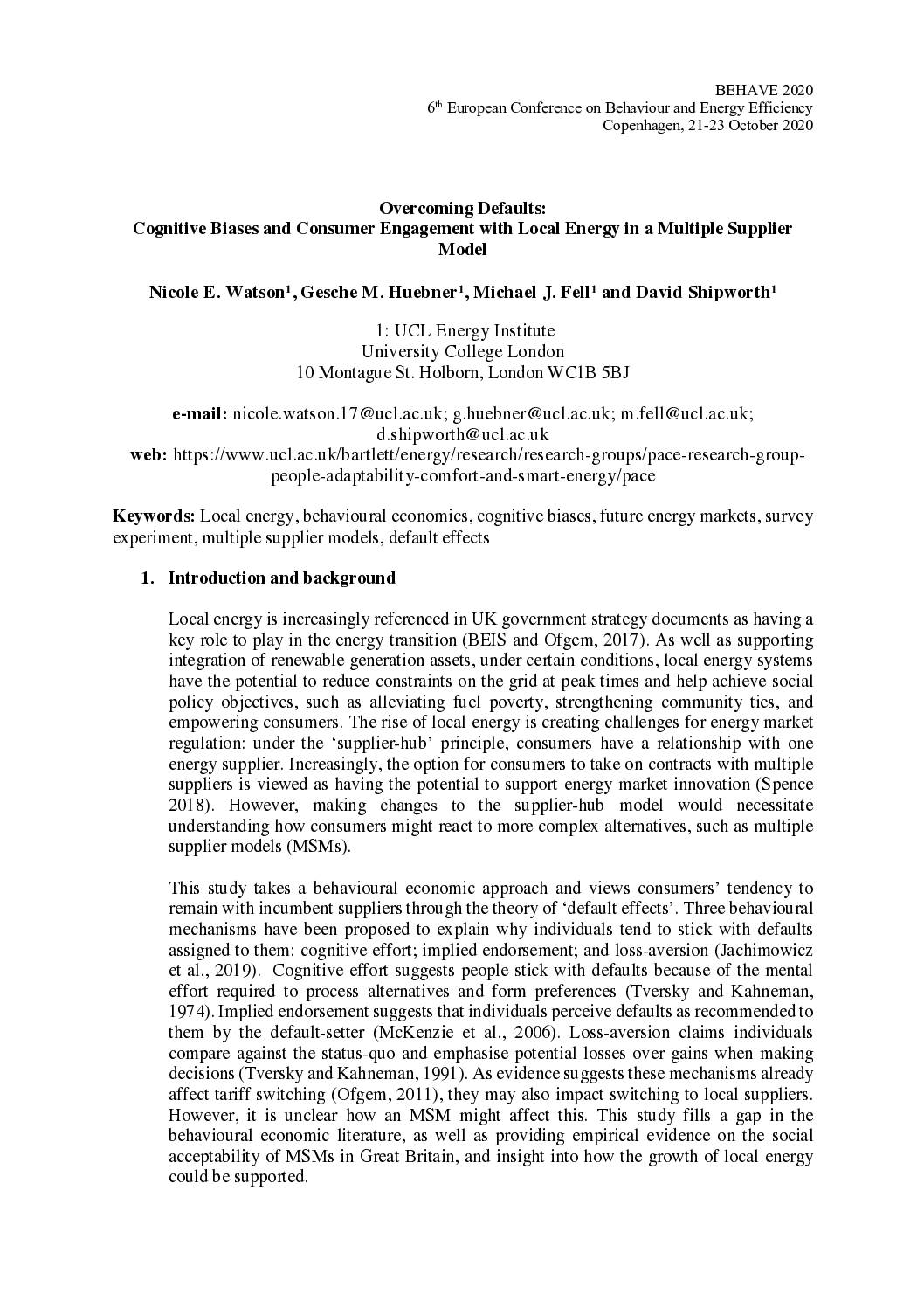Local energy is increasingly referenced in UK government strategy documents as having a key role to play in the energy transition (BEIS and Ofgem, 2017). As well as supporting integration of renewable generation assets, under certain conditions, local energy systems have the potential to reduce constraints on the grid at peak times and help achieve social policy objectives, such as alleviating fuel poverty, strengthening community ties, and empowering consumers. The rise of local energy is creating challenges for energy market regulation: under the ‘supplier-hub’ principle, consumers have a relationship with one
energy supplier. Increasingly, the option for consumers to take on contracts with multiple suppliers is viewed as having the potential to support energy market innovation (Spence 2018). However, making changes to the supplier-hub model would necessitate understanding how consumers might react to more complex alternatives, such as multiple supplier models (MSMs).
This study takes a behavioural economic approach and views consumers’ tendency to remain with incumbent suppliers through the theory of ‘default effects’. Three behavioural mechanisms have been proposed to explain why individuals tend to stick with defaults assigned to them: cognitive effort; implied endorsement; and loss-aversion (Jachimowicz et al., 2019). Cognitive effort suggests people stick with defaults because of the mental effort required to process alternatives and form preferences (Tversky and Kahneman, 1974). Implied endorsement suggests that individuals perceive defaults as recommended to them by the default-setter (McKenzie et al., 2006). Loss-aversion claims individuals compare against the status-quo and emphasise potential losses over gains when making decisions (Tversky and Kahneman, 1991). As evidence suggests these mechanisms already affect tariff switching (Ofgem, 2011), they may also impact switching to local suppliers. However, it is unclear how an MSM might affect this. This study fills a gap in the behavioural economic literature, as well as providing empirical evidence on the social acceptability of MSMs in Great Britain, and insight into how the growth of local energy could be supported.
Download sourceShare this

Sectors: Cross cutting, Power sector
Country / Region: Global
Tags: climate relevant regulations, energy, energy markets, grids, innovation, poverty, renewable energies, rules and regulations, social policies, sustainable livelihoods approachesIn 1 user collection: Session 6b: Promoting sustainable energy behaviours: policy instruments, interventions and evaluation of effects
Knowledge Object: Publication / Report
Publishing year: 2020
Author: Nicole E. Watson, Gesche M. Huebner, Michael J. Fell and David Shipworth
Content:


